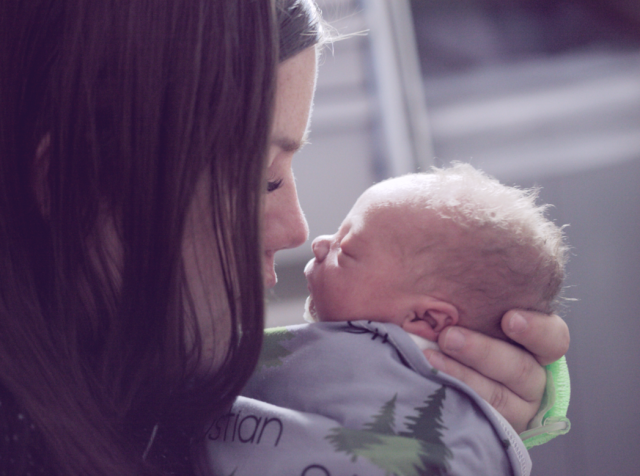When one imagines starting a family, it’s usually an intimate moment experienced by two people in love. However, for me and most other same-sex couples who want to have children (and even some hetero couples that are struggling), the experience is far less romantic and much more stressful. Starting a family is often the beginning of a long, emotional, and usually expensive endeavor.
Here are some potential obstacles for those who are embarking on a journey of non-traditional baby-making.
1. Learn to ignore outside opinions such as “Why can’t you guys just adopt?”
The number of times people would say this statement to myself or partner when we discussed starting a family was…let’s just say 10 times too many. I’m adopted. I know it’s an option. Everyone will have their own personal reasons for wanting to create a baby. If someone says this to you just say “Thanks, I know.” If you feel comfortable or want to educate this person on why you want a biological child, share on. If you want to shut the conversation down add the words “I’ll let you know if I need anything.”
2. Finding resources and considering legal rights.
No matter how you do the math, two individuals of the same sex are currently unable to have a child that would contain 50% of the genes of both parents. As a result, couples need to seek out an egg donor, sperm donor and/or a surrogate to carry the baby. Each couple will have names for individuals whose DNA helped create or carry their baby. For instance, we say “donor dad” when referencing our children’s biological father. The “donor dad” can be friends or anonymous donors from online banks. Some of these online donors are “open donors” meaning when your child is 18 years old if your son/daughter wishes to lookup their biological “other,” they can.
As for the legal stuff, I suggest finding a lawyer (many offices provide free counseling to those who qualify). We chose to use an online donor who had already given up any legal rights to our children. Each state has slightly different laws regarding same-sex couples so do your due diligence and double-check. In my situation, my partner needed to adopt the children ASAP. If I had become incapacitated for any reason my partner would not have had any legal rights to our children (even though her name is on their birth certificates) and they could have been put into foster care. Yes, our system of government regarding the rights of non-traditional families needs to catch up.
3. IVF and IUI are expensive.
Even with a top-of-the-line health insurance policy, getting pregnant via IVF/IUI is expensive. I just checked an online sperm bank and a single vial of sperm can cost up to $920! When I went the IUI path nearly 7 years ago it was routine to use two vials per attempt. Eggs and surrogates cost much more than sperm, then add into the mix all the additional medical visits for blood draws, ultrasounds, etc. You can see how the price can quickly skyrocket and require extra time away from work.
4. IVF/IUI medical visits add additional stress to your life and work balance.
Luckily I had an understanding boss and my work schedule was fairly flexible when I started the process of getting pregnant in a non-traditional fashion. For a female, it involves more visits and more hormones than for men. Not only did I take multiple pills a day, but I was also required to keep a detailed record of shots I injected on certain days around my navel during each IVF cycle. Thinking about how you will balance all of this before you start the process is a good idea. I’m definitely not trying to deter anyone! I just want to offer an eyes-wide-open realistic view.
5. Judgement.
When you’re trying to get pregnant in a non-traditional fashion it’s almost impossible to hide anything from the medical staff helping you. Since my partner and I live in a big city (Chicago) most of the staff we encountered were supportive of our efforts, and if they weren’t, I didn’t hear about it or sense it. Couples in small towns don’t always have access to LGBTQ friendly facilities. That adds a whole new level of stress to the process. Sometimes family isn’t supportive and that hurts too.
6. What’s Wrong With Me?
At some point or another, especially if you’re in a non-traditional relationship, you’ve asked yourself this question, I know I have. Like when I only had 10 good eggs to harvest during my first IVF egg retrieval (I had read reports of some women having 20+ eggs). Sometimes, when couples begin this process they discover that their bodies were just not designed to procreate even with medical intervention. Finding out you’re unable to create a child can be a serious blow to one’s identity. Don’t beat yourself up. Focus your energy on accepting yourself unconditionally and shift lanes.
Getting pregnant with the help of medical intervention makes things less romantic, more sterile, and more stressful and expensive. It’s important to speak up for yourself and your needs. Make sure you do as much research as you can. Know you are not the only person doing this and you’re not alone. Find others in your community you can lean on for support and keep stress to a minimum.
Last but not least: try to have some fun. If it doesn’t work out for you I’m truly sorry. My partner and I were fine with adoption if we had found out I wasn’t physically able to create children. Luck, timing, and medicine were on our side. We have two healthy kids 19 months apart whom we love and cherish more than anything. It’s not easy, but it was worth it.











